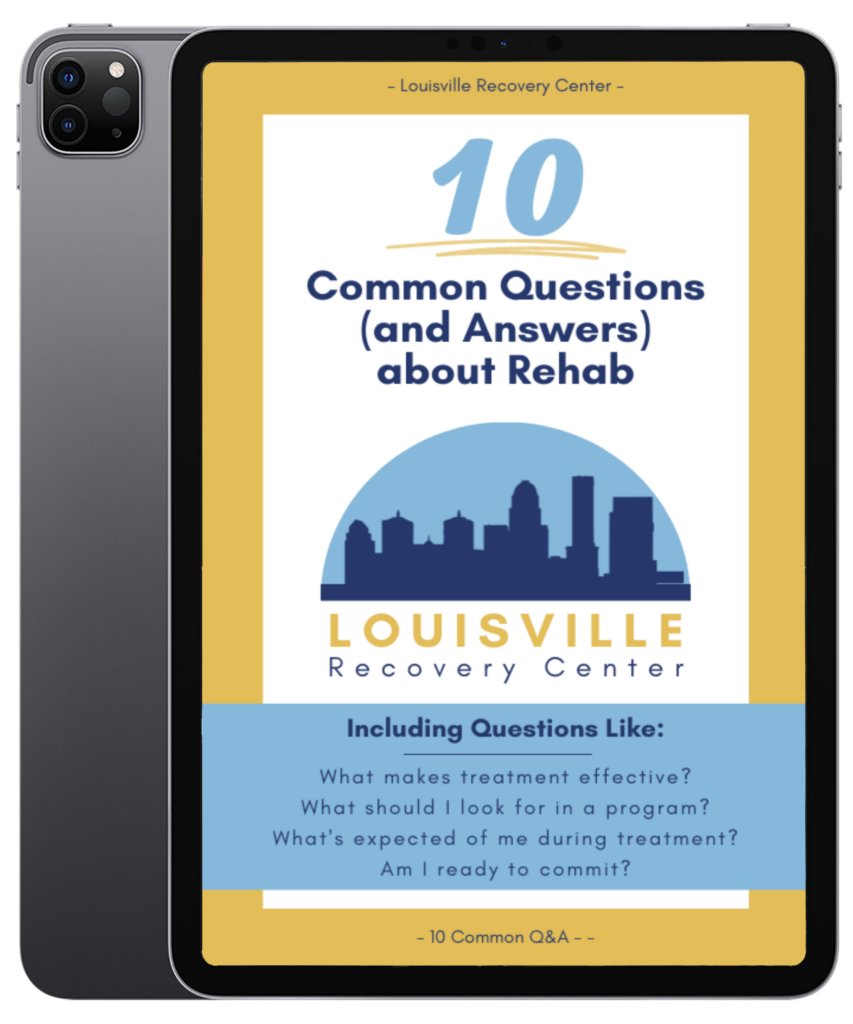Bowling Green Drug Rehab Center
In 2023, the Beshear-Coleman administration reported a second-year decrease in the number of drug overdose deaths across the state of Kentucky. This decline does not dismiss the fact that thousands of Kentuckians have lost their lives due to drugs. Finding the right drug rehab near Bowling Green is essential to living a sober life. Louisville Recovery Center understands that starting the process of recovery can be intimidating. Still, with the right substance abuse treatment center, you can be on your way to long-term recovery.
Substance Abuse in Bowling Green
Bowling Green, like many other highly populated areas in Kentucky, has been significantly affected by the opioid crisis and other substance abuse issues. According to the Drug Task Force, Warren County, which includes Bowling Green, there has been a consistent increase in drug-related incidents – with a record 2,000 drug overdose deaths recorded in a single year. This rise is the first time the state has seen numbers like this.
What is Treated at a Substance Abuse Treatment Center near Bowling Green?
Substance abuse treatment centers near Bowling Green offer specialized care for a variety of substance use disorders and related conditions. Some of the common issues treated in Bowling Green drug rehab centers include:
- Alcohol Use Disorder (AUD): A chronic condition where controlling alcohol consumption is tough, leading to compulsive drinking and emotional distress when not drinking.
- Drug Addiction: Treatment for addictions to substances like opioids, cocaine, methamphetamine, and more.
- Co-occurring Disorders: Many people with substance abuse issues also suffer from mental health disorders like depression, anxiety, bipolar disorder, or PTSD. Treatment centers often handle both problems simultaneously.
- Prescription Medication Abuse: Treatment for misuse of prescription drugs, including painkillers, sedatives, and stimulants.
- Behavioral Addictions: Some centers also address behavioral addictions, such as gambling, sex, or internet addiction, especially when they contribute to substance abuse.
- Dual Diagnosis: Treatment centers may specialize in addressing both substance abuse and mental health disorders together.
Bowling Green drug rehab centers specialize in creating personalized treatments that are specifically catered to the individual – setting them up for long-term recovery.

Fill Out This Quick Form To Download Our FREE 10 Q&A About Rehab eBook
Types of Treatment Options Available in a Bowling Green Area Rehab
Rehab centers near Bowling Green offer a variety of treatment options to meet the needs of those struggling with addiction. These options may include:
- Detox: The first phase involves managing withdrawal symptoms under medical supervision to ensure safety and comfort as your body adjusts to being substance-free.
- Inpatient Rehab: This involves staying at the facility for a set period, receiving 24/7 support, intensive therapy, and a structured daily routine focused on recovery.
- Outpatient Rehabilitation: You get treatment while living at home and continuing your daily activities. Programs vary in intensity and are perfect if you can’t commit to residential treatment or have completed inpatient care.
- Individual Therapy: One-on-one sessions with a therapist to explore the root causes of substance abuse, address past traumas, develop coping strategies, and set recovery goals.
- Group Therapy: Brings together people with similar experiences to share challenges, provide mutual support, and learn from each other, guided by a trained therapist.
- Family Therapy: Involves family members in the treatment process to address dysfunctional dynamics, improve communication, and strengthen relationships, creating a supportive environment for recovery.
- Medication-Assisted Treatment (MAT): Combines FDA-approved medications with counseling and behavioral therapies to treat opioid or alcohol use disorders, helping reduce cravings and withdrawal symptoms.
- Holistic Therapies: Includes approaches like yoga, meditation, art therapy, music therapy, acupuncture, or massage therapy to address the physical, emotional, and spiritual aspects of healing.
- Aftercare Planning and Support: After rehab, personalized aftercare plans, support group attendance, continued therapy, community resource access, and establishing healthy routines help maintain sobriety.
- Dual Diagnosis Treatment: Addresses co-occurring mental health disorders alongside substance abuse with integrated treatment approaches, aiming to improve overall outcomes and prevent relapse.
There is not a “one-size-fits-all” approach to addiction treatment. Sometimes, individuals need a multi-faceted approach to overcome problems with addiction.
At Louisville Recovery Center, we offer specialized treatment for professionals, men, women, and members of the LGBTQ+ community. These programs take the unique experiences of each of these groups into account to deliver tailored support. We also offer an adolescent IOP program for teens aged 12 to 17. This program helps teens navigate addiction recovery and build skills that will serve them well as they transition into adulthood.

Support and Resources in Bowling Green
Bowling Green offers various resources for individuals seeking help with substance abuse. Local support groups like Alcoholics Anonymous (AA) and Narcotics Anonymous (NA) provide a community for those in recovery. Bowling Green also has several local initiatives and programs aimed at combating substance abuse, like the Warren County Drug Court, which offers an alternative to incarceration for drug offenders, focusing on rehabilitation and recovery.
The Admissions Process of a Bowling Green Area Addiction Rehab
The admissions process for a rehab near Bowling Green involves several steps to ensure you get the right care and support. Here’s what to expect:
- Initial Contact: Reach out via phone, email, or online form to ask questions, gather information, and discuss treatment options.
- Pre-Assessment: We gather info about your substance use history, medical background, mental health concerns, and treatment goals to develop a personalized plan.
- Verification of Insurance and Payment Options: Our staff helps verify insurance coverage or explore alternative payment options.
- Scheduling an Admission Date: A specific admission date is set, allowing for smooth planning and preparation.
- Orientation and Intake: Includes paperwork completion, program rules review, and meetings with admissions staff to address any remaining questions.
- Medical Assessment: Evaluates your physical health, including current conditions, medication needs, and potential withdrawal risks.
- Psychosocial Assessment: Assesses psychological and social needs, exploring factors like family dynamics, employment status, and support network.
- Treatment Planning: We work together to develop a treatment plan that outlines specific goals, interventions, and strategies for your recovery.
- Beginning Treatment: Treatment starts with detox, therapy sessions, group activities, and educational workshops.
Entering a treatment program can be an overwhelming process, but it doesn’t have to be with Louisville Recovery Center by your side. We work closely with you to understand the entire process and answer all the questions you might have along the way.
Directions from Bowling Green to Our Facility
If you’re in Bowling Green and need addiction treatment, our facility is less than two hours away. From Bowling Green, get on I-65 N toward Louisville. You can use your GPS and get off on exit 20, or our admissions team can give detailed directions and help with travel arrangements to ensure you get here smoothly. Don’t forget – we are located in the Eastern Time Zone, so we are an hour ahead of Bowling Green.

Call Louisville Recovery Center for Addiction Treatment Near Bowling Green
Louisville Recovery Center understands how hard it can be to find the right addiction treatment center near Bowling Green. Our trained and experienced staff are ready to answer any questions about attending a substance abuse rehab center and help you take the first step toward a life free from addiction.
If you or a loved one are considering addiction treatment in the Bowling Green area, reach out to Louisville Recovery Center to learn more about the substance abuse treatment process and the rehab options available. Our compassionate team is here to support you every step of the way.
